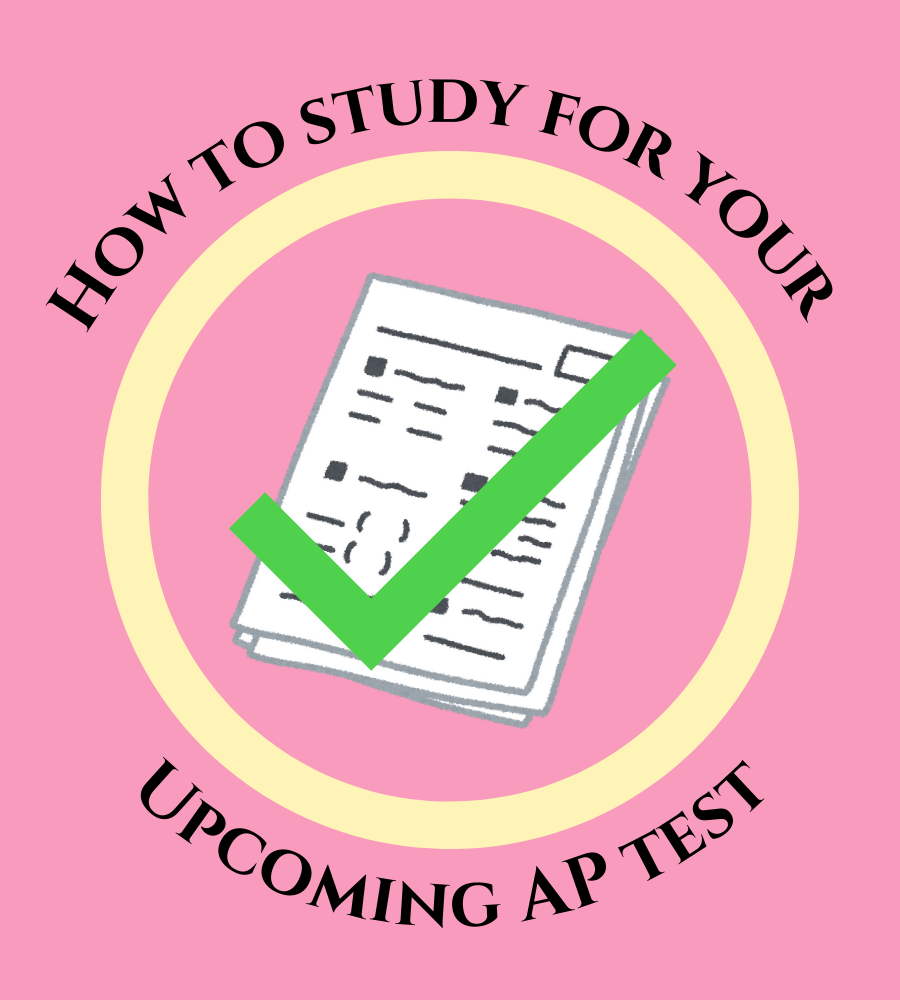Behind the closed old main gym doors, the sounds of clicking chromebook keyboards and pencils scratching paper echo off the walls. The atmosphere feels tense and focused as AP students work through all the sections of their AP tests. For the last few weeks before the test, students crammed in studying both in and outside of class, hoping to score a 5.
With the first few weeks of May comes AP testing. From AP US History to AP Calculus AB, students prepare to take their exams. For AP Biology and AP European History students, however, the test has already passed. Despite that, over the past few weeks, students have studied and prepared for their AP tests.
“You never really feel like you’re prepared until you actually take the test, it’s a never-ending cycle of stress,” Saif Garasia, an APUSH, AP Physics, AP Latin and AP Psychology student, said. “I guess the stress motivates me in a way where I’m just so scared to fail the test and completely lock in and pray it’s enough.”
For AP history tests, students have many options for studying. Heimler’s History, one of the most well-known history channels on YouTube, makes videos covering entire units for several AP history classes like AP World History, APUSH, AP Euro, AP Government and newly added AP Human Geography. He also makes videos about how to write Long Essay Questions, Short Answer Questions and Document Based Questions. If students would like a more in depth review, Heimler has a review guide that costs $25 as well as videos that highlight the really important stuff students should remember with note guides, practice questions and even full practice exams. If students or their parents do not mind spending a little money, Barnes & Noble sells different types of AP review books in the SAT/PSAT prep area. Specifically, they sell The Princeton Review, which comes with a free account on their website (https://www.princetonreview.com/) where students can take practice tests and access different AP sources.
“One tip that I would give to upcoming APWH students is to write their own notes,” AP World History student Meredith Flake said. “I personally find it helpful, especially at the end of the year, to be able to look back at them because they’re written in a way that my brain can understand.”
With AP science classes such as AP Chemistry, AP Bio and AP Physics I & II, you can find detailed videos and content covering the class’s topics on websites such as YouTube. Chemistry students can watch Tyler Dewitt on YouTube; he has in-depth videos that go over AP Chemistry content. Quizlet, another great source for studying, uses definition and vocab words cards as a quick and easy way to memorize vocab words and their definitions. Just like the AP histories, Princeton Review also sells books for the AP sciences too. Some students have found rereading their notes from over the year and making physical review cards that they can use to study with friends.
“I would highly recommend studying for your test throughout the whole year,” Jackson Pratt, an AP Physics I and APUSH student, said. “After you learn something, study at home to reinforce it.”
Meanwhile, AP classes in the math category have options like Wrath of Math on YouTube, a YouTuber who makes videos going over AP Calculus and Algebra content. This goes for the others too, but students can take practice tests on AP Classroom or on Princeton Review—if you have the book. Some students, though, take a more creative route for studying by using fun and weird rhymes or short short stories to remember important vocabulary, formulas or content. Khan Academy offers free courses for AP Calculus AB/BC and AP Statistics. Fiveable also offers in-depth study guides and practice questions for students to study with. Knowt offers multiple choice practice, FRQ practice, mock exams and an AP score calculator.
“Our best use of time is practicing free response questions since we can’t really do full free response questions until our curriculum is complete,” AP Calculus teacher Stephanie Trevathan said. “With that being said if we only review free response questions students would burn out, so I also mix this up with multiple choice questions or other mini lessons to break up the difficulty of the free response questions.”
AP English classes have similar ways of studying to the other AP classes. For example, AP classroom for practice exams, questions and practice writing prompts, or Princeton Review for the physical review book and getting testimonials from previous students in that AP class all work. Although these remain good ways of studying, students can do something as simple as reading a book to get into a reading mindset or treating any online article like students would on a text on the actual test, both of which prepare their brain to think through questions about the main idea/thesis of the text, the claims the author or writer makes and other questions along those lines.
“Ultimately, the Language & Composition test is one of the more performative AP exams,” Micah Adams, AP Language & Composition teacher, said. “…so the preparation comes in simulating the actual performance tasks of the test as much as we can.”
Despite all of that, a good breakfast and lots of rest can be the ultimate gamechanger. Having the ability to enable high brain function is crucial towards testing efforts. Students should just make sure they charge their chromebook overnight, have the right supplies and make sure they get to their testing area on time.
“I know it might be easier said than done, but on test day I think it’s best to relax, make sure you’ve got some food in your stomach, and just go into the test and give it your best shot,” AP World History teacher Otto Beyer said. “I hope my students can lean into all of that hard work and preparation and find some peace on test day.”


